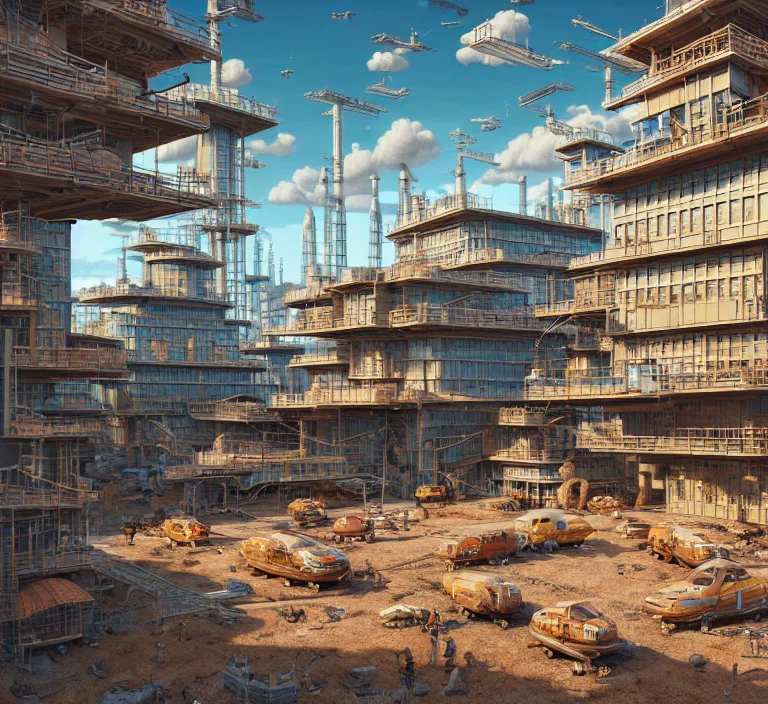Abundance Is Here: How Artificial Intelligence Will usher In a New Era of Plenty

It's no secret that artificial intelligence has been making huge strides in recent years. But what many people don't realize is how this technology will soon usher in an era of extreme abundance. The recent advances in AI technology have allowed us to work smarter and faster, producing higher quality products and services. This is going to change the world as we know it, and make it a much better place for everyone. But what exactly does this mean for you? Keep reading to find out!

Historical Context
History has shown us that each new generation of technology brings with it an exponential increase in productivity. This has been referred to as "The Law of Accelerating Returns" by futurist Ray Kurzweil. What it means is that each new generation of technology is more powerful, less expensive and easier to use than the one before it, while resulting in more efficient and better quality products. This has been true for everything from the industrial revolution to the digital revolution, from the printing press to the personal computer, and it is now happening with artificial intelligence.
We are already seeing marginal improvements in AI every year, but these marginal improvements are going to start compounding very soon. As AI gets better at solving problems and creating things, its own rate of improvement will increase exponentially. This is what Kurzweil calls the "intelligence explosion."
So what does this mean for us? It means that we need to start preparing for this new era of plenty. We need to learn how to use AI responsibly and make sure that everyone has access to its benefits.Ban this technology, and the future may be bleak. However, with it, unimaginable potential is at your fingertips.

Extreme Abundance of Everything
There's a lot of debate about how artificial intelligence will cause widespread unemployment and even greater social division. But I believe that AI will actually usher in a new era of abundance.
For centuries, human beings have been limited by the amount of resources. We can only mine so much coal, drill so much oil, and farm so much land. But another scarce resource is intelligence. And artificial intelligence is rapidly becoming very good at aiding, replicating and even exceeding human intelligence, making intelligence more abundant.
Price deflation - is defined as a general decrease in prices. This happens when there is an increase in the supply of goods and services relative to the amount of money chasing those goods and services. And this is exactly what we are seeing with AI.
If an AI assistant can make a software developer ten times more productive, then that developer can serve ten times as many customers. But with ten times the productivity the developer is ten times more valuable to his or her employer and can command a higher salary. So the gains from AI don't just go to shareholders, they also go to workers in the form of higher wages.
The same thing is happening in every other industry where AI is being adopted. We are seeing a rapid decrease in the cost of goods and services that are enabled by AI. And this trend is only going to continue as AI gets better. This is good news for consumers, but bad news for businesses that don't adapt.

Extreme Variance
Nassim Nicolas Taleb has popularized the concept of Extrimistan, or a world of extreme variance. He argues that there are two types of distributions:
- Mediocristan, which is characterized by predictable, moderate variation. Examples include height and weight. In this type of distribution, the average is a good predictor of future outcomes.
- Extrimistan, which is characterized by unpredictable, extreme variation. Examples include stock prices, incomes and life spans. In this type of distribution, the average is a poor predictor of future outcomes. Taleb argues that our world is increasingly moving from Mediocristan to Extrimistan. This has major implications for how we think about abundance and scarcity.
Artificial Intelligence falls under the Extrimistan category, because it is subject to exponential compounding technological improvements. This means that AI will get better and better at an accelerating pace. As it does, it will increasingly be able to take on more and more jobs currently done by humans.
This has major implications for abundance and scarcity. As AI gets better at doing more things, the things it can do will become increasingly cheaper. This is already happening with creative tasks like creative writing, image editing, and even software development. But imagine as AI gets more sophisticated, it will be able to take on more and more complex tasks.

Unlimited Custom Content on Demand
Artificial Intelligence will allow for faster content creation on demand. For example, if you wanted an article on a specific topic, an AI could research and write it for you in a matter of minutes. This would be a huge boon for content marketers, bloggers, and even students who need to write papers.
The implications of this are far-reaching. As the cost of content creation plummets, we will see a corresponding increase in the amount of content being produced. This will lead to an explosion of information and knowledge, making it easier than ever for people to find answers to their questions.
Audio and Video content will also become easier to produce. AI can already generate realistic images and videos, and it is only a matter of time before it can generate realistic audio as well. This will allow for the creation of realistic movies, TV shows, and even video games on demand.
Video games will also become more realistic, and will be able to generate vast virtual worlds that are indistinguishable from reality. We will also see the rise of digital assistants, which will be able to perform tasks such as scheduling appointments and ordering groceries.
According to Balaji Srinivasan, a partner at Andreessen Horowitz, “The arrival of digital life will mean the end of scarcity.” He believes that artificial intelligence will usher in a new era of abundance, where we will have more than enough of everything.
This is an exciting time to be alive, and it is only going to get better from here. Thanks to artificial intelligence, the future is looking brighter than ever before. Balaji Srinivasan's vision for the future is one that I can't wait to see come to fruition. Balaji also predicts that by 2045, the majority of humans will choose to augment themselves with technology, and I believe that this is also a very real possibility. Brain-computer interfaces, artificial intelligence, and other forms of technology will slowly but surely become a part of our everyday lives until they are indistinguishable from us.

Wealth Gap
So far, it may appear to be a paradise, but it is important to remember that abundance is not the same as equality. There will still be rich and poor people, but the gap between them will be much smaller. Everyone will have access to the same resources, and no one will have to go without.
In an era of abundance, we will be able to focus on more important things than just survival. We will be able to pursue our dreams and ambitions without worrying about where our next meal is coming from. We will be free to explore and discover, without the constraints of scarcity.
According to Lex Friedman, a futurist and artificial intelligence expert, "The coming era of abundance will be defined by two competing forces: the democratization of access to information and resources, and the concentration of power among those who control AI."
Friedman also believes that we are on the cusp of an era of great abundance, but it is important to remember that not everyone will benefit equally from it. The key to making sure that everyone can enjoy the fruits of this new era is to make sure that we distribute the resources fairly.
Conclusion
In the past, technological revolutions have always led to more abundance and not less. It is clear that artificial intelligence is going to play a major role in the future of humanity. It has the potential to change everything from the way we live our lives to the way we interact with each other. The implications of this are far-reaching, and it is important to start preparing for them now.
Thanks for reading!
Thanks jasper.ai for helping me write this article.
Thanks lexica for the images.